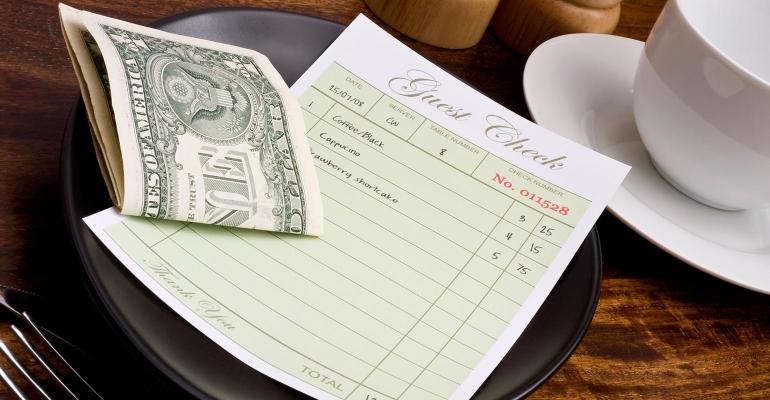Last fall, President Biden announced a proposed crackdown on “junk fees” or misleading consumer-facing surcharges that are usually included in the fine print before a purchase is made. The Federal Trade Commission’s proposed trade regulation rule would require businesses to include all required fees in the original listed price. While media attention on this proposed crackdown had initially focused on companies and industries like Ticketmaster, airlines, hotels, and car rental agencies, the FTC rule would also include restaurant service charges in its new rule.
Most recently President Biden mentioned getting rid of junk fees again during the annual presidential State of the Union address last week:
“I’m also getting rid of junk fees — those hidden fees — at the end of your bill that are there without your knowledge…. My administration has proposed rules to make cable, travel, utilities, and online ticket sellers tell you the total price up front so there are no surprises,” Biden said in his address to the nation.
On March 5, the White House announced the launch of a new strike force to fight “unfair and illegal pricing,” cochaired by the Department of Justice and the Federal Trade Commission, with the goal of saving American consumers nearly $20 billion in junk fees and to promote more competitive pricing in the corporate community.
The FTC proposed rule that would allow the federal government to crack down on these “hidden fees” specifically mentions restaurants, among other industries, as targeted industries that would have to adhere to new standards. The FTC noted that commenters during the public commentary period observed that, “restaurants routinely add fees to bills that were not previously disclosed, using various names (e.g., ‘’service fee,’’ ‘hospitality fee,’ ‘kitchen fee,’ ‘equity fee,’ ‘economic impact fee,’ ‘temporary inflation fee’) that do not clearly or conspicuously identify their nature or purpose.”
While service surcharges have become a lot more common in the post-COVID era, local governments are already taking a stand, with Washington, D.C. issuing an advisory on service fee disclosure requirements last summer.
The Independent Restaurant Coalition has been advocating with the federal government on behalf of restaurants to remove service fees from the language of the proposed FTC rule, arguing that moving toward a “service-included” model would endanger the livelihoods of restaurant workers, and suggests instead that the FTC work with restaurant operators to create clear guidance for service surcharge transparency requirements.
“The IRC appreciates the commission's efforts to address issues related to unfair or deceptive fees and urge you to reconsider and modify the proposed rule, specifically with regard to the language surrounding the use of service fees in restaurants,” a letter from Erika Polmar, executive director of the Independent Restaurant Coalition, to the FTC reads. “The current proposal to eliminate the service fees that are finally providing predictable wages and benefits for employees does not fully recognize the nuances of the restaurant industry, where the ability to utilize a variety of compensation models i crucial for equitable and predictable employee compensation.”
While the FTC claims that only one-fifth of restaurant operators currently implement service surcharges, the IRC claims that more than half of restaurants have considered implementing a surcharge to combat rising wage inflation.
Dan Jacobs chef/owner of EsterEv and Dan Dan in Milwaukee is one of many restaurants who began implementing service fees and believes that banning these would significantly impact his business operations.
“You can [bake it into the menu price] but then that Mongolian beef all of a sudden starts to creep up into that $30 range, and I don't think people are going to want to pay it,” Jacobs said. “If you look at a 5% charge on $120 Bill, you're looking at $5.20. Like, it's not that big of a deal…. We're 100% transparent about it. We're charging 5% that goes to employee health care and benefits. I feel like I’m being less transparent if I bake it into my pricing.”
Contact Joanna at [email protected]m





